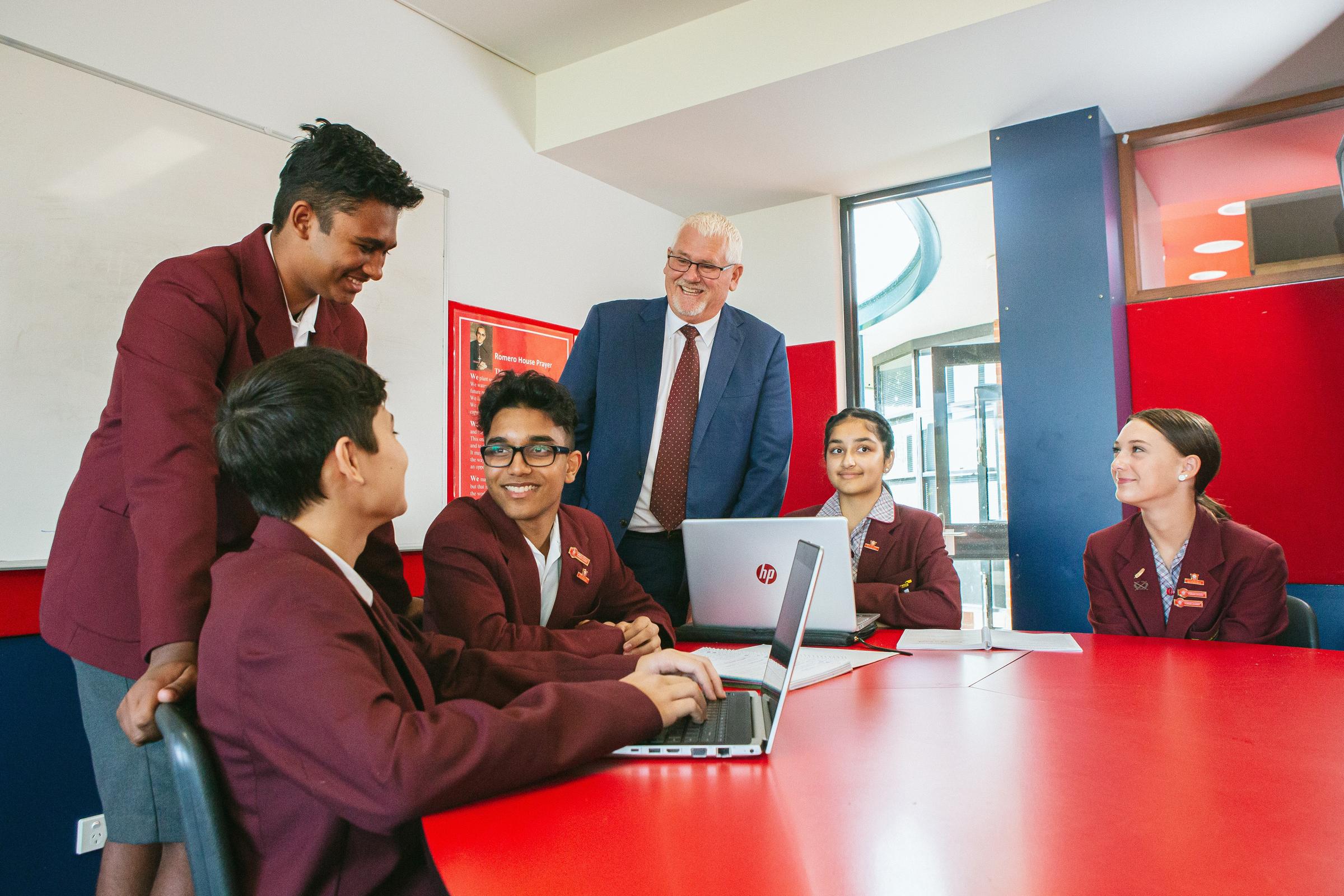Learning & Teaching News

Reflecting on 2022
As we approach the end of the 2022 academic year, I make a few observations to share with the parent community on learning and teaching at St Peter’s College:
1. Return to COVID normal
This was our first full year without any remote learning since 2019. This was undoubtedly a significant improvement for our teachers and students in delivering an engaging curriculum that maximises student learning outcomes. Nevertheless, it was not without its challenges as students took time to recall those important social and learning behaviours that enable them to perform to their best ability in the classroom. Significant effort went in to reteaching what good classroom practice looked like, especially amongst our junior students. Students were less motivated to complete homework, and it will be an important focus in 2023 to help junior students develop this habit and for our middle and senior students to implement a homework and study timetable that allows them to compete with the rest of the state.
2. Illness and motivation
Though vaccinations have allowed us to return to face-to-face teaching and learning, we are all very aware of the high level of absenteeism amongst teachers and students from ill health. This was expected given the high prevalence of COVID-19 still in our community, the weakening of our immune systems post lockdown, and the improved practice of remaining at home when the first symptoms of sickness develop. This impacted both staff and students and made it difficult to get continuity in learning and stability within the classroom with the large number of emergency teachers.
It was particularly challenging to employ teachers to be present for the whole year as our state faced a critical teacher shortage. However, we have done incredibly well compared to many of the schools around us and have recruited very well for the year ahead. Enthusiastic and talented teachers have been employed for 2023 and at the time of writing, I am pleased to note that all positions have been covered - a reason for relief and celebration.
3. Student results
While we are still awaiting our VCE results, we have been very pleased by the latest NAPLAN results. One of our school goals is to gain more than 12 months growth in a year for every student in both literacy and numeracy. As we look at the data over the last 5 years, we can see that our local primary schools are doing a good job in consistently raising the standard of our Year 7 students, particularly in reading, writing, spelling, and grammar & punctuation. The median in all these areas is now above the state. The area where our Year 7 students are still below the State is in numeracy and this level has not changed significantly.
The exciting news for us is what we have been able to achieve with our students when we look at our results in Year 9. The lack of NAPLAN data from 2020 (suspended due to COVID) made it difficult to measure learning growth for the current cohort of Year 9 students. However, we were able to study the trend over the last 5 years of our Year 9 students and analyse what has been improving.
- Reading: There has been accelerated growth compared to the State and our bottom 50% of students, have made solid progress. Our assumption is that the Reading Detective program has been significant in improving these results.
- Writing: There has been accelerated growth compared to the State and our median is now 6 points above the State. Our assumption that strategies such as quick writes and an emphasis on writing in class rather than just typing on laptops has helped.
- Spelling: The median spelling score for the school has increased compared to a decrease in the State. This continues to be a challenge as student use of devices when writing results in them relying on automatic spell checkers rather than focussing on learning to spell.
- Grammar & Punctuation: The median score for grammar and punctuation has accelerated compared to the state so that our Year 9 students are now equal to the state.
- Numeracy: This continues to be our greatest challenge with the median score only slightly increasing. While our bottom 25% of students are growing significantly which we attribute to the strength of the Maths Pathways program, we are not yet satisfied that we are growing our top end students to the extent that we would want. Our Progressive Achievement Testing (PAT) shows clearly that we are improving our numeracy over the last 4 years at all levels. We are closing the gap between the top students in our school and the state but are keen to focus on challenging all our maths students to accelerate this growth. Our Learning Adjustment Leaders – Exceptional are working on various strategies and programs and we continue to develop our Numeracy Strategy to assist all teachers in improving numeracy teaching.
With this analysis in mind, and confident in the impact of what we have implemented, we commit to resourcing and renewing the following programs in 2023 to target our lowest performing students and extending our top students:
- Reading Detective Program at Year 7 & 8.
- Literacy in Context Classes (MacLit Program)
- “Catch Up” reading program for junior students
- EAL classes at Year 7 – 9.
- Tutoring in Year 7 & 8 Mathematics classes
- Year 9 maths support classes
- VCE tutoring sessions after school
- Homework club on Monday, Tuesday, and Thursday.
We are confident that these supports will continue to see the high growth for our vulnerable students and ensure that our top students can be extended to be truly exceptional learners.
I wish you all a very happy and holy Christmas and a restful break so that all are renewed to embrace the 2023 academic year in January.
David Hansen
Deputy Principal - Learning & Teaching
